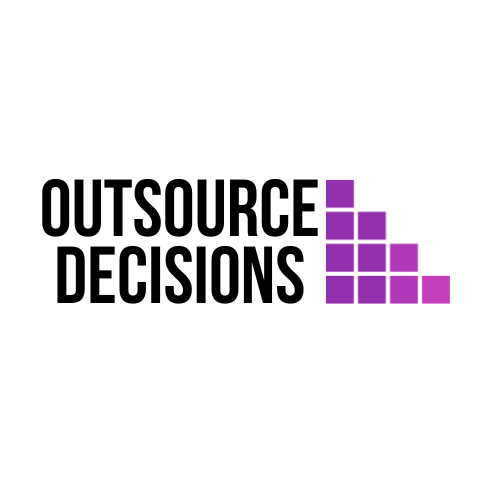In today’s fast-paced and ever-changing workplace, critical thinking skills have become an invaluable asset. Whether you’re a fresh graduate or an experienced professional, the ability to analyze information, evaluate arguments, and make sound decisions is crucial for success.
Critical thinking allows you to navigate complex situations, solve problems effectively, and stay ahead of the curve. In this comprehensive guide, we’ll explore the importance of critical thinking, provide practical tips for developing these skills, and show you how to apply them in your workplace. Get ready to unlock your full potential and become a critical-thinking powerhouse!
What is Critical Thinking, and Why Does it Matter?
Critical thinking is the ability to analyze information objectively, consider different perspectives, and make well-reasoned judgments. It involves questioning assumptions, evaluating evidence, and drawing logical conclusions.
In the workplace, critical thinking is essential for navigating complex challenges, making informed decisions, and driving innovation.
Here’s a simple analogy to help you understand critical thinking better:
Imagine you’re a detective trying to solve a mystery. You can’t just rely on gut feelings or jump to conclusions. Instead, you need to gather evidence, analyze clues, and consider all possible explanations before reaching a verdict. That’s what critical thinking is all about – examining information from multiple angles and making decisions based on logic and reason, rather than assumptions or biases.
The Benefits of Critical Thinking in the Workplace
Employers highly value critical thinking skills because they lead to better decision-making, problem-solving, and overall productivity. Here are some key benefits of critical thinking in the workplace:
Better Problem-Solving:
Critical thinkers can analyze problems from multiple angles, identify root causes, and develop effective solutions. This leads to more efficient problem-solving and fewer costly mistakes.
Improved Decision-Making:
By considering all relevant information, evaluating alternatives, and weighing the pros and cons, critical thinkers can make well-informed decisions that drive better outcomes.
Enhanced Creativity and Innovation:
Critical thinking encourages questioning the status quo, challenging assumptions, and exploring new ideas. This fosters creativity and innovation, which are essential for staying competitive in today’s market.
Effective Communication:
Critical thinkers can articulate their thoughts clearly and persuasively, facilitating better teamwork, collaboration, and conflict resolution.
Increased Productivity:
By making sound decisions and solving problems efficiently, critical thinkers contribute to higher productivity and better resource utilization in the workplace.
Developing Critical Thinking Skills
While some individuals may naturally possess strong critical thinking abilities, these skills can be developed and honed over time. Here are some strategies to help you improve your critical thinking:
a. Questioning Assumptions
One of the fundamental aspects of critical thinking is questioning assumptions. Instead of accepting information at face value, challenge the underlying assumptions and ask questions such as “Why is this assumed to be true?” or “What evidence supports this assumption?” This habit will help you uncover biases, misconceptions, and flawed reasoning.
b. Considering Multiple Perspectives
Critical thinkers actively seek out different viewpoints and perspectives. By stepping outside your own frame of reference and considering alternative perspectives, you can gain a more comprehensive understanding of an issue and make better-informed decisions.
c. Analyzing Evidence
Effective critical thinking involves evaluating the quality and reliability of evidence. Examine the sources of information, look for biases, and assess whether the evidence is relevant, credible, and sufficient to support a particular conclusion.
d. Practicing Active Listening
Active listening is an essential component of critical thinking. When engaged in discussions or meetings, actively listen to others’ viewpoints, ask clarifying questions, and seek to understand different perspectives before formulating your own response.
e. Embracing Lifelong Learning
Critical thinking requires a commitment to continuous learning and personal growth. Stay curious, seek out new information and experiences, and challenge yourself to learn new skills and perspectives. This will help you remain adaptable and open-minded, essential qualities for effective critical thinking.
Applying Critical Thinking in the Workplace
Critical thinking skills are valuable across various workplace scenarios, including problem-solving, decision-making, strategic planning, effective communication, and fostering innovation.
a. Problem-Solving
Critical thinking is essential for effective problem-solving. When faced with a challenge, critical thinkers can:
– Clearly define the problem and gather relevant information
– Analyze the root causes and contributing factors
– Evaluate multiple solutions and their potential consequences
– Implement the chosen solution and monitor its effectiveness
This systematic approach leads to more efficient and sustainable problem-solving.
b. Decision-Making
Making sound decisions is crucial in any workplace, and critical thinking can help you navigate complex situations. By carefully considering all available information, weighing the pros and cons, and anticipating potential outcomes, critical thinkers can make well-informed decisions that align with organizational goals and values.
c. Strategic Planning
Critical thinking plays a vital role in strategic planning. It involves analyzing market trends, evaluating strengths and weaknesses, identifying opportunities and threats, and developing actionable plans to achieve long-term objectives. By thinking critically, organizations can make strategic decisions that position them for success.
d. Effective Communication
Critical thinking enhances communication skills by enabling individuals to articulate their thoughts clearly and persuasively. When presenting ideas or proposals, critical thinkers can anticipate counterarguments, address concerns, and convey their message in a logical and compelling manner.
e. Fostering Innovation
Innovation thrives when individuals can think critically and challenge existing paradigms. By questioning assumptions, exploring alternative perspectives, and considering unconventional solutions, critical thinkers can drive innovation and help organizations stay ahead of the curve.
Overcoming Barriers to Critical Thinking
While developing critical thinking skills is essential, there are several barriers that can hinder our ability to think critically. Here are some common obstacles and strategies to overcome them:
Cognitive Biases:
We all have inherent biases that can cloud our judgment and lead to flawed reasoning. To combat cognitive biases, actively seek out opposing viewpoints, question your assumptions, and strive for objectivity.
Emotional Influences:
Strong emotions, such as fear, anger, or excitement, can impair our ability to think rationally. Practice emotional intelligence techniques, such as mindfulness and self-awareness, to manage emotions and maintain a clear perspective.
Group Conformity:
The desire to conform to group norms or avoid conflict can sometimes override critical thinking. Encourage open dialogue, respect dissenting opinions, and foster an environment where diverse perspectives are valued.
Lack of Knowledge or Experience:
Limited knowledge or experience in a particular area can hinder critical thinking. Embrace lifelong learning, seek out relevant information and expertise, and continuously expand your knowledge base.
Overcoming Barriers to Critical Thinking
– Identify and challenge cognitive biases
– Practice emotional intelligence and self-awareness
– Encourage open dialogue and respect diverse perspectives
– Continuously expand your knowledge and seek out expertise
– Foster a culture that values critical thinking and constructive feedback
By recognizing and addressing these barriers, individuals and organizations can cultivate an environment conducive to critical thinking and reap its numerous benefits.
6. Creating a Critical Thinking Culture
While individual efforts are crucial, fostering a culture of critical thinking within an organization can amplify its impact and drive collective success. Here are some strategies for creating a critical-thinking culture:
Lead by Example:
Organizational leaders should model critical thinking behavior, encourage questioning assumptions, and value diverse perspectives. This sets the tone and demonstrates the importance of critical thinking.
Provide Training and Resources:
Invest in training programs, workshops, and resources that help employees develop critical thinking skills. This could include problem-solving exercises, case studies, or mentorship opportunities.
Encourage Open Communication:
Create an environment where employees feel safe to express their ideas, ask questions, and respectfully challenge assumptions. Facilitate open discussions and value constructive criticism.
Embrace Diversity:
A diverse workforce brings a wealth of perspectives, experiences, and backgrounds. Actively promote diversity and inclusiveness, as this can lead to more comprehensive and insightful critical thinking.
Celebrate Critical Thinking Successes:
Recognize and reward employees who demonstrate critical thinking skills and contribute innovative solutions. This reinforces the value of critical thinking and encourages others to embrace it.
By fostering a culture that values critical thinking, organizations can unlock the full potential of their workforce, drive innovation, and achieve sustained success in an ever-changing business landscape.
7. TL;DR
Critical thinking is the ability to analyze information objectively, consider different perspectives, and make well-reasoned judgments. It’s essential in the workplace for better problem-solving, decision-making, communication, and fostering innovation.
To develop critical thinking skills:
– Question assumptions
– Consider multiple perspectives
– Analyze evidence
– Practice active listening
– Embrace lifelong learning
Apply critical thinking to:
– Problem-solving
– Decision-making
– Strategic planning
– Effective communication
– Fostering innovation
Overcome barriers like cognitive biases, emotional influences, group conformity, and lack of knowledge or experience.
Foster a critical thinking culture by leading by example, providing training, encouraging open communication, embracing diversity, and celebrating successes.
With critical thinking, you can unlock your full potential and drive success in the workplace.
Q&A
Q: Why is critical thinking important in the workplace?
A: Critical thinking is essential in the workplace because it enables better problem-solving, decision-making, communication, and innovation. It helps individuals analyze information objectively, consider different perspectives, and make well-reasoned judgments, leading to better outcomes and increased productivity.
Q: How can I develop my critical thinking skills?
A: You can develop your critical thinking skills by questioning assumptions, considering multiple perspectives, analyzing evidence, practicing active listening, and embracing lifelong learning. Additionally, seek out training programs, engage in problem-solving exercises, and actively challenge your own thought processes.
Q: What are some common barriers to critical thinking?
A: Common barriers to critical thinking include cognitive biases, emotional influences, group conformity, and lack of knowledge or experience. To overcome these barriers, it’s important to actively challenge biases, practice emotional intelligence, encourage open dialogue, and continuously expand your knowledge base.
Q: How can organizations foster a culture of critical thinking?
A: Organizations can foster a culture of critical thinking by leading by example, providing training and resources, encouraging open communication, embracing diversity, and celebrating critical thinking successes. This involves creating an environment where diverse perspectives are valued, constructive criticism is welcomed, and critical thinking skills are nurtured and rewarded.
Q: Can critical thinking skills be applied to personal life as well?
A: Absolutely! Critical thinking skills are valuable not only in the workplace but also in personal life. They can help you make better decisions, solve problems more effectively, and navigate complex situations in your personal relationships, financial planning, and overall decision-making processes.





